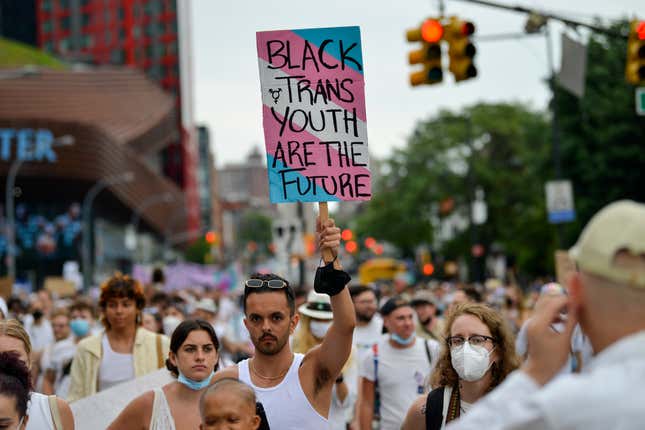
In a year marked by unrelenting attacks on transgender Americans, there’s finally some good news. On Sunday night, U.S. District Court Judge Sarah Geraghty blocked a new Georgia ban on hormone therapy for transgender youth, debunking anti-trans rhetoric in the process.
“The imminent risks of irreparable harm to Plaintiffs flowing from the ban — including risks of depression, anxiety, disordered eating, self-harm, and suicidal ideation — outweigh any harm the State will experience from the injunction,” wrote Judge Geraghty on Sunday.
It’s a scathing push-back against the tide of anti-trans laws throughout the nation. SB 140 would have allowed doctors to prescribe puberty-blocking medication to minors who are already receiving the therapy. However, it blocks new patients under 18 from receiving the same gender-affirming care.
Studies have repeatedly shown the importance of the availability of gender-affirming care for the health and well-being of transgender youth. This care can be particularly crucial for Black transgender and non-binary youth who suffer from an alarmingly high rate of suicide.
Laws like the one in Georgia are hardly novel. As of July, roughly 21 states had passed restrictions on gender-affirming care for transgender youth, according to the Human Rights Campaign. And over 32 percent of transgender youth lived in states that had passed on bans on gender-affirming care.
In her ruling, Judge Geraghty argues that these bans violate the equal protection clause. “SB 140 places a special burden on transgender minors, like the minor plaintiffs, and it does so on the basis of their gender nonconformity,” she writes. Geraghty also debunks the state’s claim that trans-youth regret hormone therapy on a wide scale.
“The state has presented little in the way of reliable evidence of resistance or regret in those who would qualify for hormone therapy pursuant to the applicable standard of care,” she wrote. “Indeed, the record shows the contrary: that when gender-affirming care involving hormone therapy is provided in accordance with the WPATH standards of care, rates of regret are low.”
Although the law is temporarily blocked, this likely won’t be the last of SB 140. And it certainly won’t be the final law attacking care for transgender youth.

